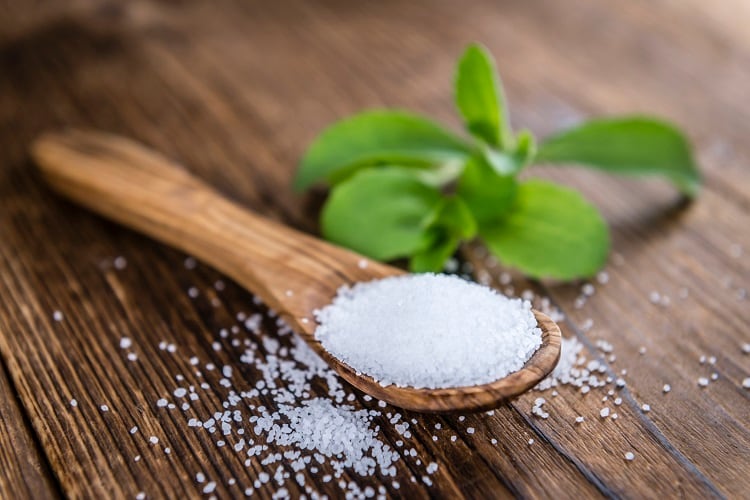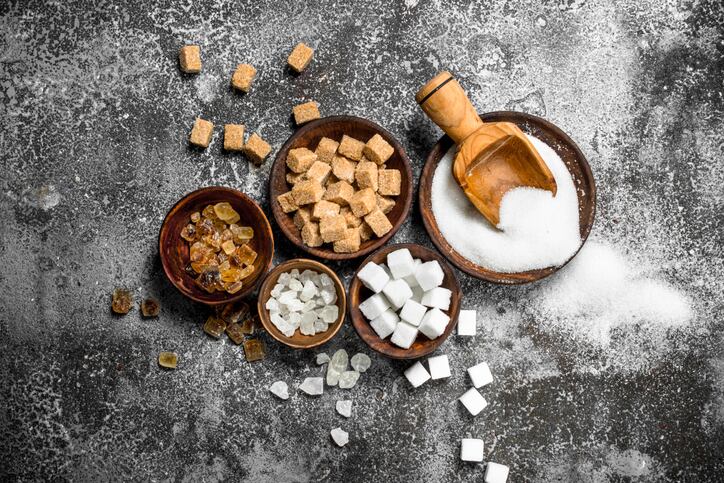The research was undertaken as part of SWEET, a European Commission Horizon 2020 funded project supported by pan-European research, consumer, and industry partners.
The five-year project aims to develop and review evidence on long-term benefits and potential risks involved in switching over to sweeteners and sweetness enhancers in the context of public health and safety, obesity, and sustainability.
“There are a lot of sweeteners and enhancers about, but the sugar industry hasn’t utilised those in the way that perhaps we would like, in terms of reducing the levels of sugar in the diet,” explained European Association for the Study of Obesity (EASO) president Jason Holford, a coordinator of the SWEET project.
“This is because of technical difficulties, but it’s also about concerns from consumers about some of these ingredients.”
While much work has been done to understand the safety of sweeteners, researchers observed ‘very little’ has been undertaken to understand the category’s sustainability profile.
To address that gap, a group of international researchers – led by the University of Surrey’s Centre for Environment and Sustainability – has conducted a life cycle assessment of (LCA) for European production of popular sweetener stevia.
The study, published in ‘The International Journal of Life Cycle Assessment’, focuses on production of rebaudioside A 60%, 95% pure (RA60) steviol glycoside mix from Stevia rebaudiana leaf (otherwise known as candyleaf, sweetleaf or sugarleaf) grown in Europe.
Sugarcane and sugar beet: unsustainable crops?
The cradle-to-factory-gate LCA focused on global warming potential, freshwater eutrophication (accumulation of nutrients in freshwater sources), water consumption, and land use.
Researchers analysed environmental impacts in terms of both production mass and sweetness equivalence. The sweetness equivalence of RA60 is typically 200 to 300 times that of sugar.
The study compared the environmental impact of RA60 to that of sugar (sucrose) derived from both cane and beets – an ingredient under fire for its hefty environmental footprint.
Non-nutritive sweeteners (NNS) like steviol glycosides are many times sweeter than sugar. For example, 4g of steviol glycosides provides the sweetness equivalent of 1,000g sugar, because it is perceived to be 250 times sweeter.
Sugercane is the most produced food crop in the world, with yield having increased 15% over the last decade. According to AI-powdered analytics provider Spoonshot, both sugarcane and sugarbeet are water- and land-intensive crops.
In a recent report, the company calculated the global average water footprint of producing one kilogram of refined sugar from sugarcane is about 1,782 litres of water. For sugar derived from beets, the water requirement is around 920 litres.
Clearing land for increased sugar production takes its toll on biodiversity, as can inputs from fertilizers and pesticides. These chemicals are thought to have negative implications for land, groundwater and drinking water supplies.
“The long and short of this is that sugar crops are increasingly becoming unviable in an era when environmental and climate issues are at the forefront of everyone’s mind,” noted Spoonshot in the report.
‘Steviol glycosides could be sweet news for the health of our planet’
In what is the first LCA of steviol glycoside mix RA60 produced from leaf in Europe, it was found the production of the sweetener caused less environmental impact across a wide range of markers, when compared to sugar.
For example, it offers an opportunity to reduce land use or water consumption compared to the same level of sweetness as sugar.
The global warming potential of RA60 was found to be 20.25kg CO2e/kg on a mass basis and 0.081kg/CO2e/kg on a sweetness equivalence basis.
The primary source of impact was the field production of stevia leaves, with the second most important coming from extraction of the RA60. “Leaf processing and seedling propagation were minor contributors to life cycle impact,” explained the researchers.
By removing the international transport element, global warming potential was reduced by 18.8%. Compared with sugar on a sweetness equivalence basis, RA60 has approximately 5.7% to 10.2% the impact for global warming potential, 5.6% to 7.2% the impact for land use, and is lower across most other impact categories.
“The use of steviol glycosides and similar natural products could be sweet news for the health of our planet,” said the University of Surrey’s Dr James Suckling, lead author of the study.
"My hope is that industry takes reassurance that if they choose to use steviol rebaudioside A 60% (RA60) made from leaves, instead of sugar, they are not going to cause unintended negative environmental impact," he told this publication. "Steviol glycosides are also very interesting in that they can be produced on land previously used for tobacco cultivation. In countries like Greece, stevia offers a viable alternative crop for farmers wishing to transition away from tobacco for whatever reason."
While many non-nutritive sweeteners (NNS), like steviol glycosides, don’t present the same health risks associated with sucrose – such as tooth decay, obesity, or diabetes – because they are many times sweeter, the researcher did suggest more research is required into the health impacts of the NNS category.
“The use of steviol glycosides and similar natural products could be sweet news for the health of our planet. However, our study readily admits that much more work needs to be done to understand the health impacts of steviol glycosides and other non-nutritive sweeteners when consumed as part of a wider diet.”
Source: The International Journal of Life Cycle Assessment
‘Environmental life cycle assessment of production of the high intensity sweetener steviol glycosides from Stevia rebaudiana leaf grown in Europe: The SWEET project’
Published 14 January 2023
DOI: https://doi.org/10.1007/s11367-022-02127-9
Authors: J. Suckling, S. Morse, R. Murphy, S. Astley et al.



